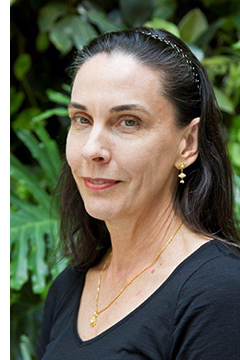 Sanya Sagar, a PhD student of psychology, helped to found the Caring for our Caregivers program.
Sanya Sagar, a PhD student of psychology, helped to found the Caring for our Caregivers program.
A new project out of UWindsor’s Psychological Services and Research Centre offers help for hospital workers in distress.
Staff at Windsor Regional Hospital and Hotel-Dieu Healthcare can get free counselling from students working under the supervision of registered psychologists. The program will focus on concerns that can be addressed in single, 90-minute sessions, but clients will be eligible for three additional 50-minute sessions. Those requiring further help will be referred to the Canadian Psychological Association, which offers free counselling for front-line workers through its Psychology Works for COVID-19 program.
Called Caring for our Caregivers, the UWindsor program is the brainchild of doctoral candidate Sanya Sagar.
“It’s a labour of love,” she said, explaining the project is not part of her studies or dissertation. “It’s an extra — an important extra.”
 Sagar approached psychology professor Josée Jarry (pictured at right) about the idea and together they designed the program with three other graduate students — Healey Gardiner, Ashley Howard, and Noam Simon. In all, 25 upper-year students will be involved, under the supervision of Jarry, Annette Dufresne, Dana Ménard, and Andrew Taylor.
Sagar approached psychology professor Josée Jarry (pictured at right) about the idea and together they designed the program with three other graduate students — Healey Gardiner, Ashley Howard, and Noam Simon. In all, 25 upper-year students will be involved, under the supervision of Jarry, Annette Dufresne, Dana Ménard, and Andrew Taylor.
Practicum opportunities for students have nearly vanished because of the current pandemic, so there’s a symbiosis to the program, Dr. Jarry explained. “It provides a service to the community and a training opportunity for the students.”
The program will have a research component, as well. Clients will be asked to participate in a survey before and after the intervention. Students will do the same. The data collected will become part of the research centre’s archive.
Single-session therapy is an established model in psychology, Jarry explained. “The idea is brief intervention… We try to get people good to go in one session.”
The therapists will try to identify an immediate concern that can be improved now. It may not be the most severe concern, but one that can be addressed quickly.
Workers in crisis will be referred to an emergency service.
Jarry said hospital workers, whether they provide direct patient care or support those who do, face unprecedented stress in their jobs. That stress often manifests itself in feelings of depression and difficulty sleeping.
Healthcare workers not only worry about the real possibility of contracting the virus that causes COVID-19 and becoming ill or dying, they are concerned about causing harm to the people around them, Jarry said. Those on the front lines are required to go into quarantine when not working, leaving them isolated from their families.
“These are very, very difficult conditions.”
Sagar said it is important to offer a community-based service. Other telehealth programs can’t guarantee the therapist offering service is familiar with the community or hospital where the client is from.
The project is funded through UWindsor’s Office of the Vice-President of Research and Innovation and the WE-Spark Health Institute, a research partnership involving the University of Windsor, Windsor Regional Hospital, Hotel-Dieu Grace Healthcare, and St. Clair College. It is one of 21 local COVID-related projects WE-Spark is supporting through its COVID-19 Rapid Response grant program.
—Sarah Sacheli
